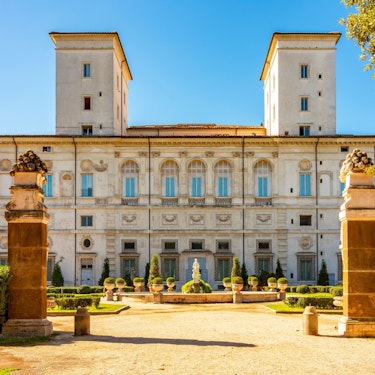More about: Borghese Gallery in Rome: Tickets and Tours
The Borghese Gallery is one of the most renowned art galleries in the world thanks to its treasures by Bernini, Raphael, Botticelli, and Rubens. Is it worth a visit? Absolutely, and not just for the works it houses, but also for its unbeatable location in the Villa Borghese Gardens.
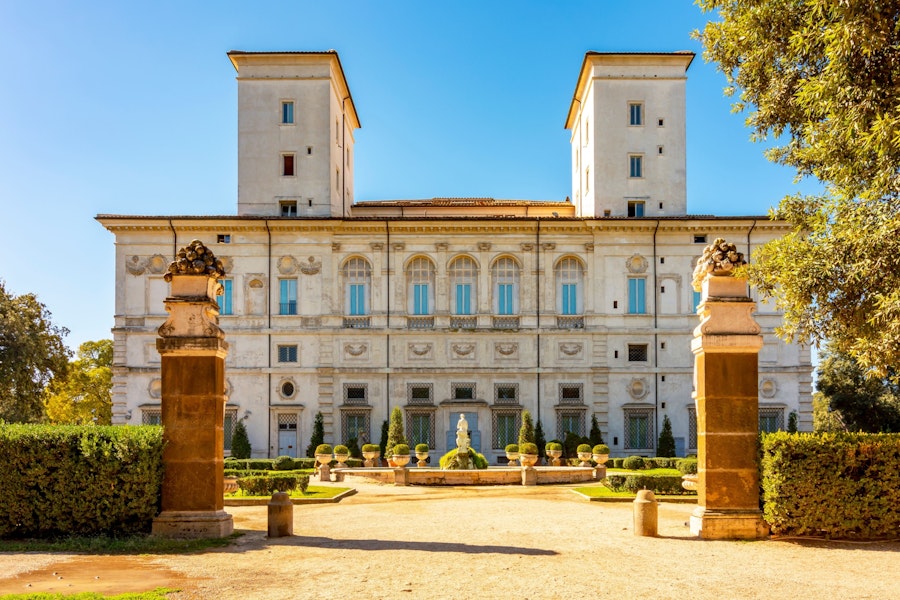
Rome Gallery Borghese Tickets
Discover the Borghese Gallery at your own pace and without queuing
Quickly access one of Rome's most important art collections, featuring works by Caravaggio, Bernini, Canova, and Raphael. Explore the gallery at your own pace and enjoy a cultural experience in a unique setting.
If you prefer to visit museums on your own, a good option is to book these skip-the-line tickets for the Borghese Gallery, which will allow you to enter the museum directly without unnecessary waiting. Before entering, a host will welcome you and answer any practical questions about the visit.
Once inside, you can freely explore the rooms of this villa-museum, located in the gardens of Villa Borghese, and enjoy works by artists such as Caravaggio, Bernini, Raphael, and Canova, with the peace of mind of having up to two hours to explore at your own pace.
Recommended if... you prefer to explore the museum on your own without depending on a group or a guide.

Rome Gallery Borghese Small Group Guided Tour
Guided tour of the Borghese Gallery in a small group
Enjoy a more personalized experience with an expert guide and small groups. Learn about the history behind each work and contemplate the artistic gems of this museum in a more intimate setting.
This guided tour of the Borghese Gallery in a small group is ideal if you are looking for a more in-depth and accompanied experience. With skip-the-line access, you will tour the different rooms of the museum accompanied by an expert guide who will explain the context and details of the most important works.
The experience lasts approximately two hours and is conducted in groups of about 15 people, allowing for closer interaction with the guide and a better understanding of the works of artists such as Bernini, Caravaggio, Titian, and Raphael.
Recommended if... you want to get to know the works of the Gallery in depth and enjoy a more relaxed and personalized visit.
How to buy tickets for the Borghese Gallery
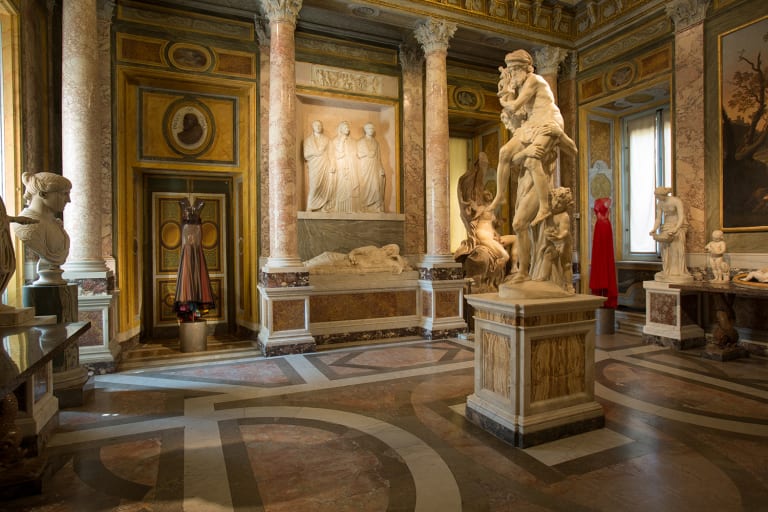
The best advice I can give you for visiting the Borghese Gallery is to buy your tickets online well in advance of your trip so you don't miss out on this experience. This is the basic ticket, which allows you to enter the museum at a pre-booked time without having to wait in line.
As with any other museum in the world, when you buy this skip-the-line ticket, you can enjoy a visit at your own pace, without having to follow a specific route. However, due to the large number of visitors, I recommend that you be very punctual to avoid problems with access.
Is it worth taking a guided tour of the Galleria Borghese?
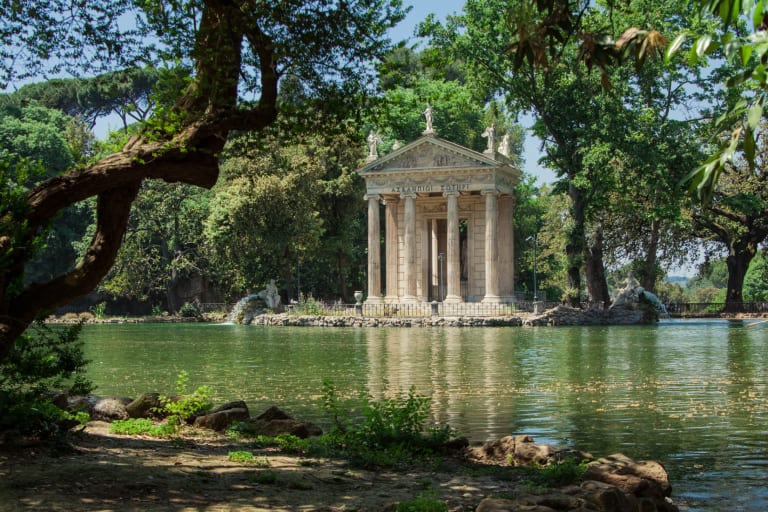
Yes, especially in a museum like the Borghese Gallery, where much of the value of the experience lies in understanding the artistic and historical context of its masterpieces. Being accompanied by a guide allows you to interpret the work of artists such as Bernini, Caravaggio, Titian, and Raphael in greater depth and make the most of your visit.
A guided tour also ensures skip-the-line access, clear guidance from the start, and the opportunity to ask questions to enrich your tour.
Recommended guided tours
- Small group guided tour of the Borghese Gallery – from $88 Two-hour tour with an expert guide and skip-the-line access in groups of up to 15 people.
- Guided tour of the Borghese Gallery and its gardens – from $69 Also includes access to the gardens; ideal if you want to extend your visit outdoors after the museum.
- Private tour of the Borghese Gallery with an expert guide – from $271 A fully customized option with a private guide, perfect if you are looking for a more exclusive experience.
Save on your visit to the Borghese Gallery with the Roma Pass

A visit to the Borghese Gallery is included in the Roma Pass tourist card, which offers a flat rate for access to the city's major attractions. With it, you'll save a lot of money on individual museum tickets and a lot of time waiting in line.
Rome is one of the most touristy capitals in the world and has many points of interest, so if you are going to spend several days in the city and want to see most of its wonders without dying in the attempt, I recommend that you get a Roma Pass without hesitation. You can find out what it consists of and how to get it in this other article I have written about Rome Pass
However, remember that even if you have your Roma Pass, you still need to book your entry time in advance to visit the Borghese Gallery. To do so, call 0039 06 32 810 or send an email to romapass@tosc.it (response within 48 hours).
Galleria Borghese opening hours
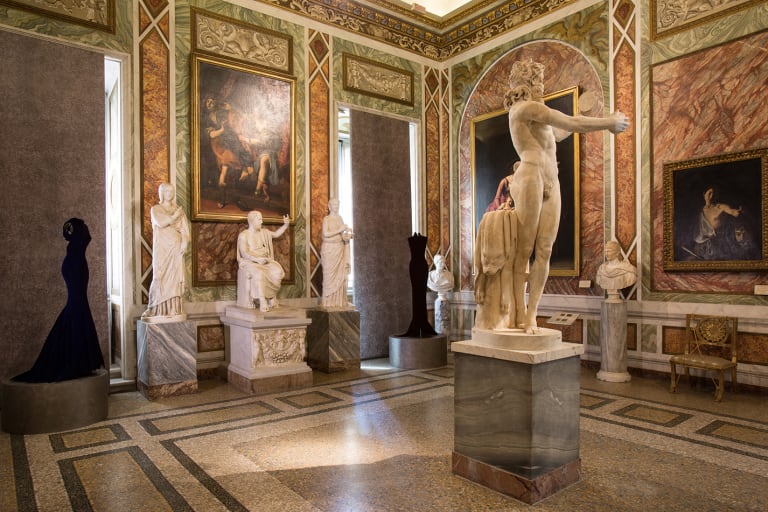
The Borghese Gallery is open Tuesday through Sunday from 8:30 a.m. to 7:30 p.m. The museum is open every day of the year except Mondays and January 1 and December 25.
If possible, try to avoid days when the gallery is most crowded so you can enjoy your visit more comfortably. These are usually weekends around noon.
How to get to the Borghese Gallery?
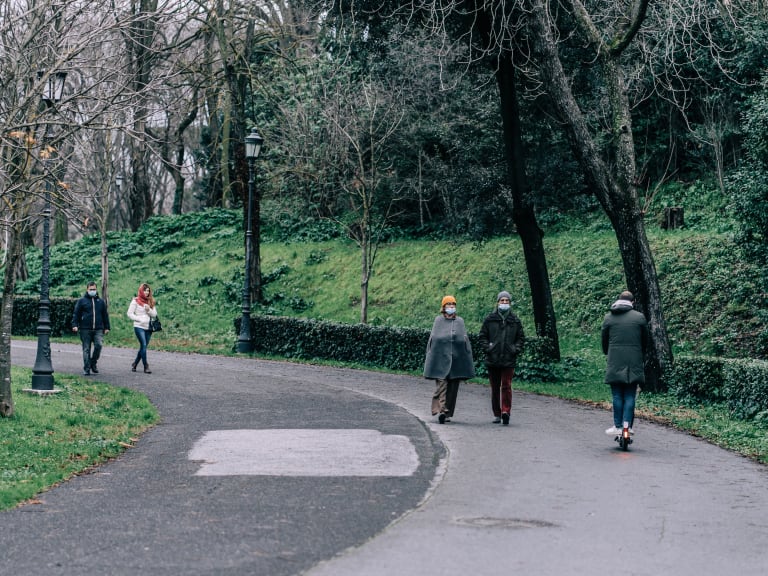
As with most of Rome, you can get to the Borghese Gallery by metro or bus, as it is located somewhat further from the city center where many of the city's major attractions are located.
Metro
The nearest metro stop is Piazza di Spagna, line A.
Bus
There are several options for getting there by bus, depending on where you are staying or where you are visiting in the city when you leave for the Gallery:
- Bus 52 (every 15 minutes): V.Tritone, Piazza Barberini, V.Veneto... This will drop you off outside the park, 200 meters from the entrance.
- Bus 53 (every 25 minutes): V.Tritone, Piazza Barberini, V.Veneto... You will get off at the same place as above.
- Bus 95 (every 15 minutes): Bocca Verità, V.Teatro Marcelo, P.Venecia, V. Corso. It will drop you off inside the park itself, a 10-minute walk from the gallery.
- Buses 86 and 116 (electric, through narrow streets, every 5-10 minutes): V. Giulia, V. dei Baullari, Corso Rinascimento, V. Zanardelli... Get off at Porta Pinciana, more than 10 minutes from the park.
Please note that punctuality is essential when entering the gallery, so if you are using public transport to get there, leave your hotel with plenty of time to spare in case the chaotic Roman traffic delays your bus more than usual.
A little history about the Borghese Gallery
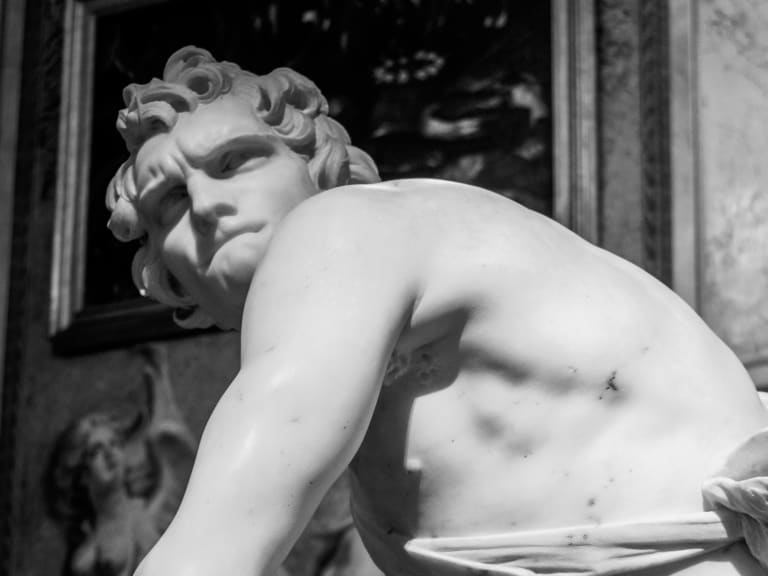
The Borghese Gallery has an extraordinary collection of Italian paintings from the 16th and 17th centuries, with works by Titian, Antonello da Messina, Bellini, and others. It houses authentic gems of painting such as Rubens' "Pieta," Raphael's "Lady with a Unicorn," and Canova's "Pauline Bonaparte."
The museum
It has rooms dedicated to the master of light and shadow, Caravaggio, with his impressive 'David with the Head of Goliath', and others housing sculptures from the early period of the brilliant Bernini, such as 'Apollo and Daphne' and 'David', as well as Roman antiquities including a 'Mosaic with Gladiators' from the 4th century AD and a 'Dancing Satyr' from the 4th century BC.
In addition, it is a truly beautiful museum in terms of decoration, with two floors that can be visited in two hours (the maximum time allowed for each visit), and without crowds, as only 360 people are allowed in each session. This ensures a very relaxed tour.
The gallery is a 17th-century palace building, known as the "Casino Nobile" of this villa, built in 1633 as a residence and exhibition space for the already famous private collection of Cardinal Scipione Borghese, patron of Bernini, nephew of Pope Paul V, and to whom the gallery and gardens where it is located owe their name.
The building
The Borghese Gallery is, in fact, one of the first buildings in the world to have been built specifically for exhibition purposes, which, compared to other modern art galleries, denotes a certain antiquity. This is despite its remodeling in 1775 under the direction of architect Antonio Asprucci, who relocated the museum's sculptures and antiquities under a single thematic criterion.
At the end of the 18th century, the building was converted into a public museum. Some time later, in 1808, due to the impossibility of maintaining the legacy, the family was forced to sell several of the sculptures and antiques to Emperor Napoleon Bonaparte, brother-in-law of Prince Camillo Borghese. For this reason, some of the jewels housed in the gallery are now in the Louvre in Paris, such as the remarkable statue of the 'Borghese Gladiator'.
Ana's Traveler Tip
The Villa Borghese park is free to enter and you can enjoy it even if you don't have a ticket for the Gallery. For me, the park is a must-see on any trip to Rome.
What can I see around the Borghese Gallery?

Villa Borghese Gardens
There are many other points of interest in the area surrounding the Borghese Gallery that you can visit on the same day as your museum visit. If you have already decided to buy your ticket for the Borghese Gallery, you will pass through the magnificent Villa Borghese Gardens, which are worth a separate visit as they are one of the largest urban parks in Europe, where nature and art come together to create a truly dreamlike setting.
In addition to the gallery, you will find sculptures, ponds, gazebos, and groves, the Rome Zoo, known as Bioparco, with more than 1,000 animals of 200 different species; the Pincio Water Clock, an example of 19th-century engineering that continues to function at full capacity, and even a replica of Shakespeare's Globe Theatre in London, the Silvano Toti Globe Theatre. A real treat for the senses.
Santa Maria della Concezione dei Cappuccini
Very close to the area, approximately one kilometer away, there are two renowned churches. The Church of Santa Maria della Concezione dei Cappuccini is one of the most unique churches in Rome because it houses a crypt decorated with the bones of more than 4,000 Capuchin friars who died between 1528 and 1870. It was built between 1626 and 1631 under the orders of Pope Urban VIII.
Santa Maria della Vittoria is the other basilica of interest in this area. Built in the 17th century to commemorate Emperor Ferdinand II's victory in the Battle of Monte Bianco, it will ring a bell if you've seen the film based on Dan Brown's bestseller Angels & Demons, as it serves as the setting for part of the film.
Piazza di Spagna and other must-see streets and squares
A short distance away, you can visit another of Rome's key landmarks, the famous Spanish Steps and its lively staircase, which was built in the early 18th century to connect the square with the Church of Trinità dei Monti and is always full of tourists, street artists, street vendors, and Romans themselves.
Just over a kilometer away, you can enjoy another of the city's most emblematic squares, Piazza Barberini, located at the end of Via Veneto. It is particularly striking thanks to the two important fountains designed by Bernini that decorate it, the Triton Fountain and the Bee Fountain.
A short distance from the square is the Barberini Palace, a wonderful Baroque palace that houses the National Gallery of Ancient Art, with more than 1,400 pieces by renowned artists from the 13th to the 18th centuries, including works by Titian, El Greco, Caravaggio, Tintoretto, and Raphael, with his brilliant work "La Fornarina."
Guided tours of the best of Rome
If you don't want to miss any of the city's most incredible streets or squares, I recommend taking a guided tour. The number of narrow streets, statues, fountains, and works of art that you can find on the streets of Rome can go unnoticed if you don't have an expert to explain them to you. I wrote this guide on Top 11 Tours of Rome that can help you choose the guided tour that best suits you.
If you're interested in the Borghese Gallery, you might also like

Rome itself is an open-air museum, but once you've visited its main attractions, leaving the Italian capital is also a good way to complete your trip. Around Rome there are some real wonders that can be reached on a day trip. In my article on 8 Best Day Trips from Rome I suggest the most interesting ones.
If you prefer to continue exploring the capital, don't hesitate to get to know Trastevere in depth, as it is one of the most picturesque and bohemian neighborhoods in the city. I'll tell you how in this article: 14 Things to Do in the Trastevere Neighbourhood.

